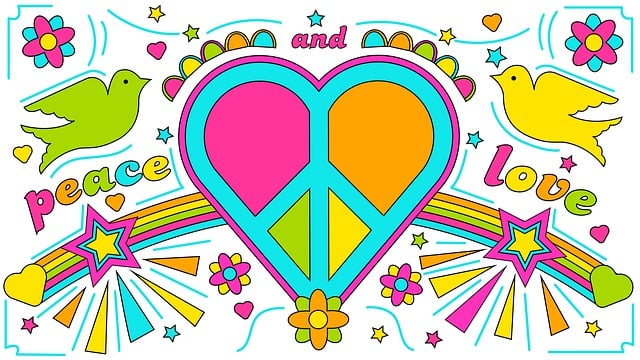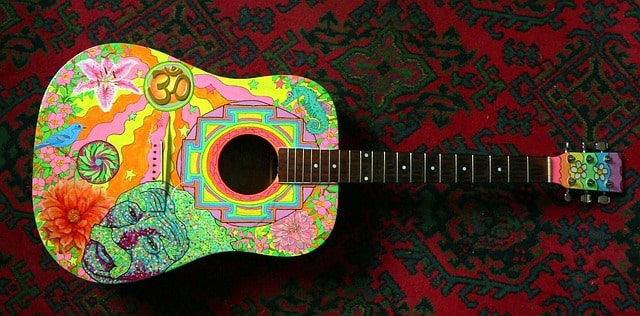
The hippie movement is characterized by pacifism.
The notion of hippie refers to a countercultural movement that emerged in the 1960s in the United States. A member of this subculture characterized by pacifism and its critical position towards the predominant social structures is also called a hippie, or jipi .
The hippie movement was born under the influence of the Beat Generation , a group formed by writers such as Jack Kerouac , Allen Ginsberg and William Burroughs who turned to drugs , promoted sexual freedom and rejected the traditional values of American culture.
From the city of San Francisco , hippies spread throughout the country and then to the rest of the world, promoting pacifism and free love . The use of drugs to reach altered states of consciousness, meditation , environmentalism and non-consumerism were other hippie pillars.
Characteristics of the hippie movement
Community life and holding outdoor events also characterized the hippies, who often listened to folk (traditional style music) and psychedelic rock . The largest hippie gathering took place in 1969, when the Woodstock festival was held: for three days, more than 400,000 people gathered to hear Jimi Hendrix , Santana , Janis Joplin , The Grateful Dead , Joan Baez , Creedence Clearwater Revival and The Who , among other artists.
Regarding aesthetics, hippies wore long hair and loose, colorful clothing , with flower prints. Bell-bottoms and long skirts were part of her usual wardrobe.

Psychedelic and folk music are associated with hippie culture.
The critical look
It is important to highlight the rejection of which the hippie movement has been and continues to be a victim, by those who accuse it of propagandizing in favor of drug consumption and opposition to many of the values that - in their opinion - are fundamental. for the development of society. Their detractors use concepts such as "social decadence" to refer to some of the consequences that the presence of hippies brings to the community in general.
To study a cultural movement or a subculture we must put aside our prejudices and analyze point by point all the data we obtain from them, without allowing subjective opinions to creep in. Given that only by living their customs as one of their community is it possible to know what being a hippie really means, it is not advisable to limit ourselves to judging the brief and cold list of values that supposedly represent them.
Precisely, many of the speeches that try to invalidate hippie culture focus on drugs - conveniently forgetting the consequences of excessive consumption of alcohol and tobacco, very common outside this movement - and leave aside their proposals in favor of peace and social equality. We must not overlook that the first young people who identified with these ideas sought to put an end to violence , in the context of the Vietnam War and its terrible consequences for society.
Hippie culture today
In the 21st century , the hippie movement is a minority and does not exist in an organized way. However, its influences can be detected in multiple cultural aspects. Perhaps the most obvious on a surface level is the way they dress: today, many people who support this culture wear their typical clothes and style their hair just as their mentors did.
Music is another element that continues to be present in today's hippies, and it has a very particular force, since far from being an aesthetic accessory it is a source of messages that help reinforce their ideals while spreading them. Although it may seem contradictory, the Internet helps them spread their ideas, as it brings the curious closer to many of their customs and musical groups, and even to buy characteristic clothing and accessories.
